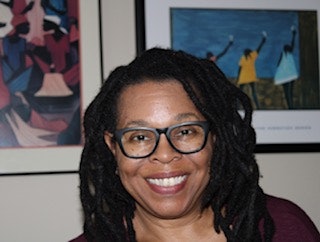At first glance, antiracism and spirituality seem at odds. The former associated with secular street-based activism; the latter with piety and attempts to “pray the racism away.” Even a cursory examination of past struggles for racial justice show that long term anti-oppression work is nurtured and sustained by much more than sheer human will. Deep spiritual wells, regardless of their religious source, make those efforts sustainable.
The gains made during past racial justice movements have come about through long-term, sustained organizing efforts—often spanning several generations. The Supreme Court’s 1954 Brown vs. Board of Education decision to end legalized segregation resulted from a half-century long legal strategy based out of Howard University’s law school. Those involved in long-term struggles like these—whether lesser-known figures such as Anne Braden, Medgar Evers, and Fannie Lou Hamer or high-profile figures like Dr. Martin Luther King Jr.—gained strength from spiritual resources. As a Black woman and a White man our work has crossed racial lines for more than three decades, and we’ve found there are concrete steps to dismantling racism through spirituality.  Dr. Regina Shands Stoltzfus
Dr. Regina Shands Stoltzfus
1) Build community. Substantive change has always come about through communities of resistance that foster more than just bodies and minds by putting spirituality at the center. Those who walked hundreds of thousands of collective miles to avoid riding public transportation during the 1955-1956 Montgomery Bus Boycott joined together on a nightly basis to draw strength and resilience from each other and share in their spiritual traditions. In mass meeting after mass meeting, they sang, prayed, preached, and prophesied their way through more than a year’s worth of boycotting. None of them were lone rangers. Their spirituality was strong because they acted as a community.
2) Accept the discipline of accountability. The world’s religions share several core principles in common. One of them is best described as ego abatement. This dying to the self opens the door to being accountable for the often strenuous and demanding work of dismantling racism. Framing the principle of accountability in a spiritual manner not only calls all people to build the relationships and networks to hold the ego in check, but particularly asks White activists to accept accountability to communities of color or otherwise risk replicating the patterns of paternalism and White supremacy that have so often been a hallmark of White engagement in racial justice struggles.
3) Walk deeper into rather than away from racial identity. Many of the world’s religions likewise promote the principle of the universal dignity and worth of all beings. Some have taken such claims and interpreted to them to mean that spiritual growth and maturity are defined by paying less attention to racial identity rather than more, a process often referred to as “color-blindness.” An anti-racist spirituality, however, calls for deeper engagement with racial identities in all their complexity. By embracing one’s warmth and dignity while also reckoning with the brokenness and strength particular to one’s racial identity, new levels of authenticity, mutuality, and inter-racial relationship emerge.  Dr. Tobin Miller Shearer
Dr. Tobin Miller Shearer
4) Do the work with joy. The lives of the spiritual giants whose legacies have best stood the test of time have almost universally been marked by joy and laughter. Student Nonviolent Coordinating Committee (SNCC) activist Fannie Lou Hamer laughed long with Rosemarie and Vincent Harding, the hosts of MennoHouse in Atlanta, while she was recuperating from a beating at the hands of White southern segregationists. Kwame Ture (nee Stokely Carmichael), also of SNCC and for a short period the Black Panthers, was known for his deft mimicry that brought much needed comedic relief amid life-threating civil rights work. Antiracism work devoid of joy does not last. It dissipates all too quickly.
5) Recognize the sacred in the midst of struggle. An authentic spirituality ties belief to action, accepts limitation, and sparks the imagination. In short, it calls those who connect with spirituality in the work of dismantling racism to conceive of what has not yet been and enter the struggle to make it real. Novelist and essayist Alice Walker once wrote, “Anybody can observe the Sabbath, but making it holy surely takes the rest of the week” (In Search of Our Mothers' Gardens: Womanist Prose). The work of dismantling racism through spirituality makes the weekdays holy as well.
Spirituality in anti-racist activism means turning to the divine for sustenance, solace, and resilience. As such, rather than focus on doctrine or creed, spirituality moves outside any given religious tradition or ecclesial structure. Marked by a commitment to truth-telling, a grounding in community, and a fostering of joy, an antiracist spirituality fosters and empowers work to dismantle racism and White supremacy.
Dr. Tobin Miller Shearer is a professor of history and director of African-American Studies at the University of Montana and Dr. Regina Shands Stoltzfus is a professor and director of Peace Justice & Conflict Studies at Goshen College. They are the authors of Been in the Struggle (Herald Press, Nov. 2, 2021).



















